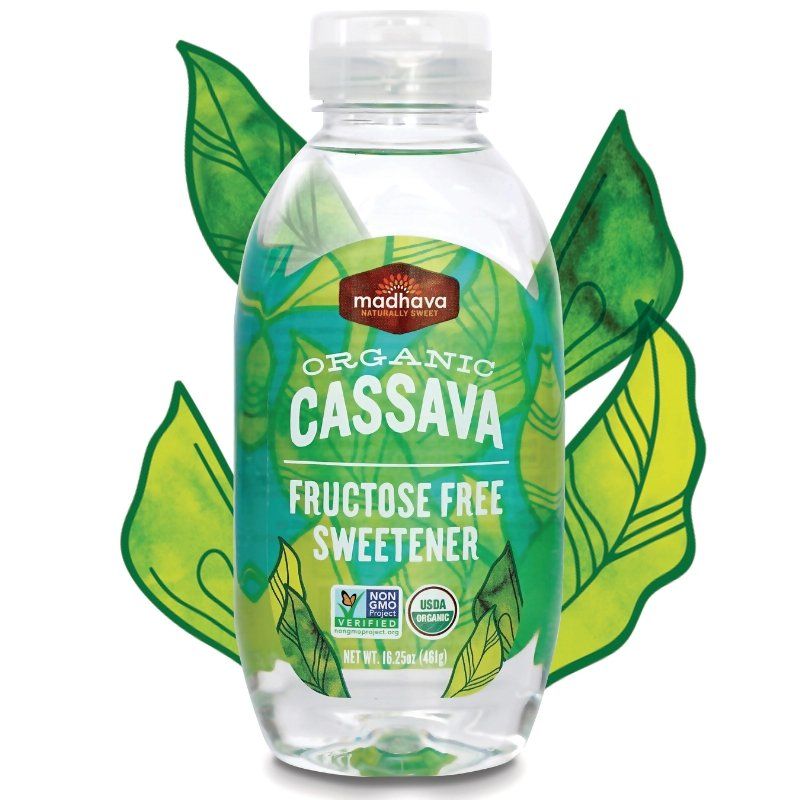New Cassava Syrup Is Fructose-Free Sweetener
Madhava says its new organic cassava is the first single-ingredient cassava syrup sweetener to be sold commercially in the United States.
Image provided by Madhava Natural Sweeteners.

Madhava Natural Sweeteners (Longmont, CO) recently rolled out its new organic cassava syrup for use as a sweetener in foods and beverages. Available now on retail shelves as a finished product in a 16.25-oz squeeze bottle, the cassava syrup has also been included as an ingredient in other packaged foods and beverages, according to Madhava.
Perhaps best known in the United States as the source of tapioca syrup, cassava is a brown-skinned starchy tuber grown throughout Africa, South America, and Asia. Madhava produces its cassava sweetener by mixing the cassava root starch with water, heating it, and then treating it with non-GMO enzymes to hydrolyze the starch into sugars.
Compared to other sweeteners, the fructose-free nature of cassava is a major selling point, according to Robin Koiro, senior brand manager for Madhava.
“Due to the fact that organic cassava is fructose free, it’s an excellent option for people who are fructose intolerant,” Koiro tells Nutritional Outlook. “The sugar profile is 35% glucose, 35% maltose, and 30% complex [carbohydrates]. The neutral-flavored syrup adds natural sweetness to food and beverages.”
As far as Madhava is aware, it is the first U.S. food and beverage company to offer single-ingredient cassava syrup sweetener at the retail level. While it is too early to share exact retail figures of the new cassava syrup, “the interest is high and momentum is strong,” according to Koiro.
Madhava’s organic cassava syrup has also been incorporated into other packaged products, including coatings, bars, confectionary, and baked goods, Koiro says.
In addition to the organic cassava syrup, Madhava also recently released two other new products: Kids Organic Honey Water and Organic Honey Pairings.
Read more:
Tapioca Syrup is a Corn Syrup Replacer
Stevia and Monk Fruit: What Makes a Natural Sweetener Natural?
Sweeteners with Reduced Particle Size Allow for More Precise Processing, Steviva Says
Michael Crane
Associate Editor
Nutritional Outlook Magazine
michael.crane@ubm.com
Prinova acquires Aplinova to further increase its footprint in Latin America
April 7th 2025Prinova has recently announced the acquisition of Brazilian ingredients distributor Aplinova, which is a provider of specialty ingredients for a range of market segments that include food, beverage, supplements, and personal care.










